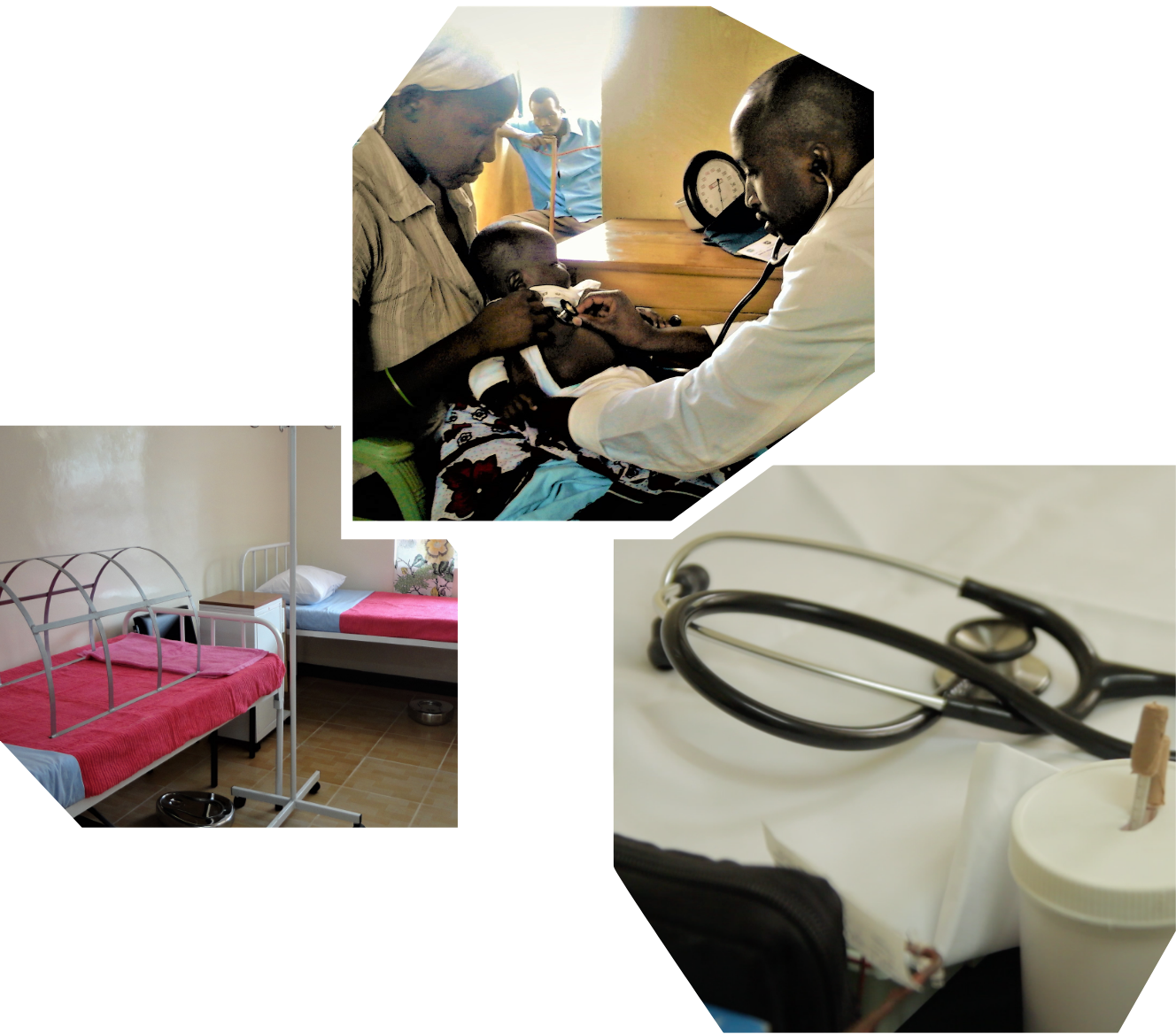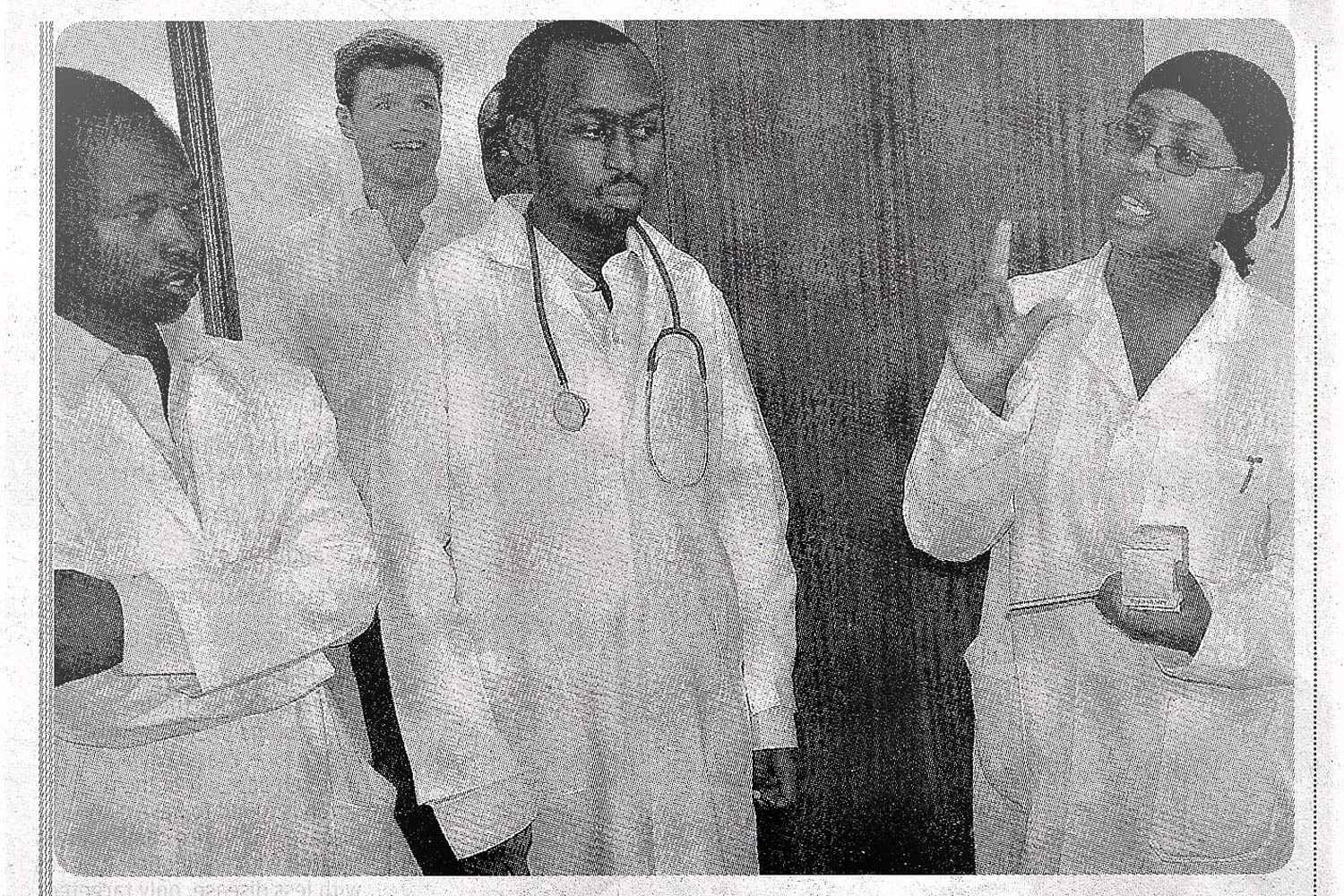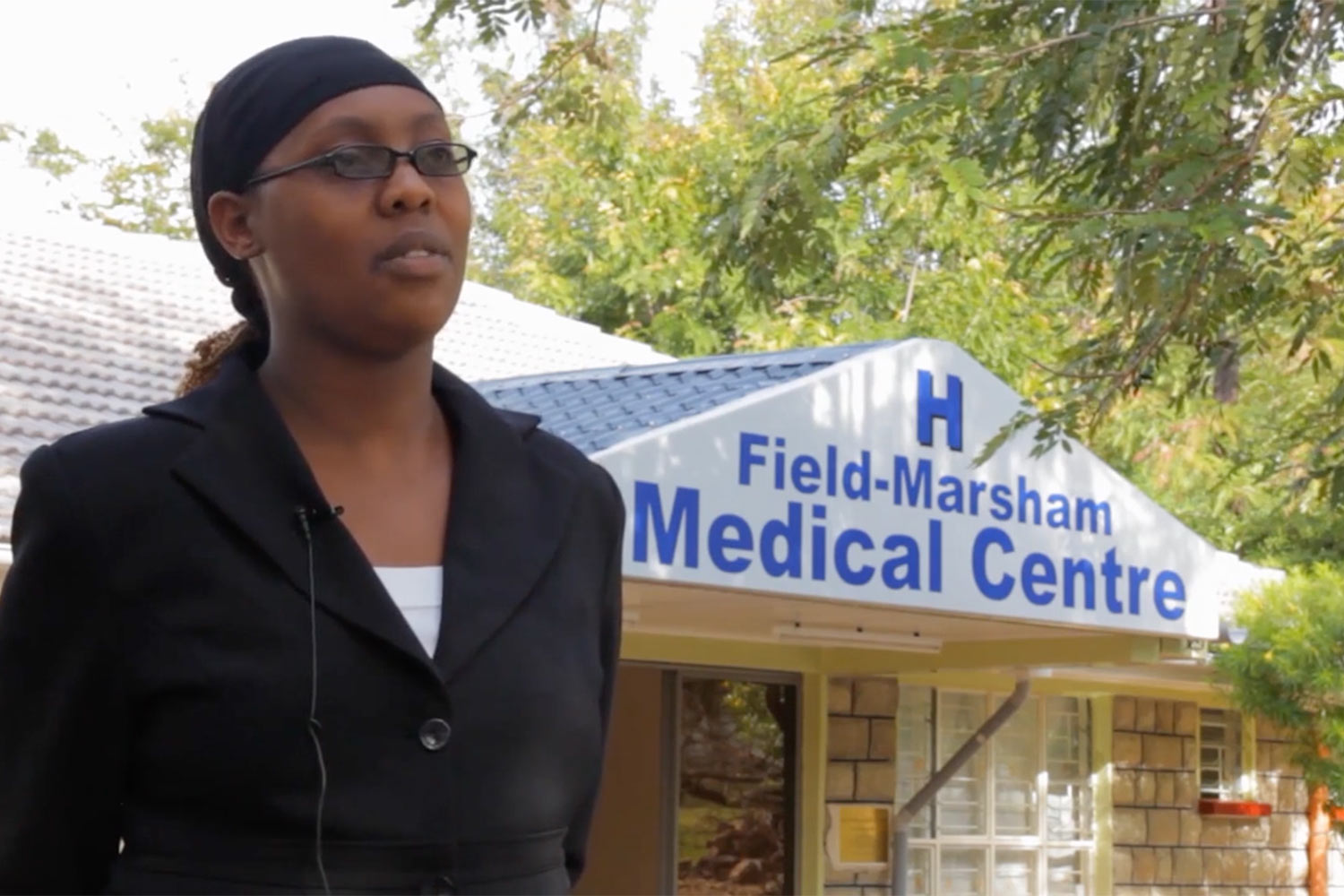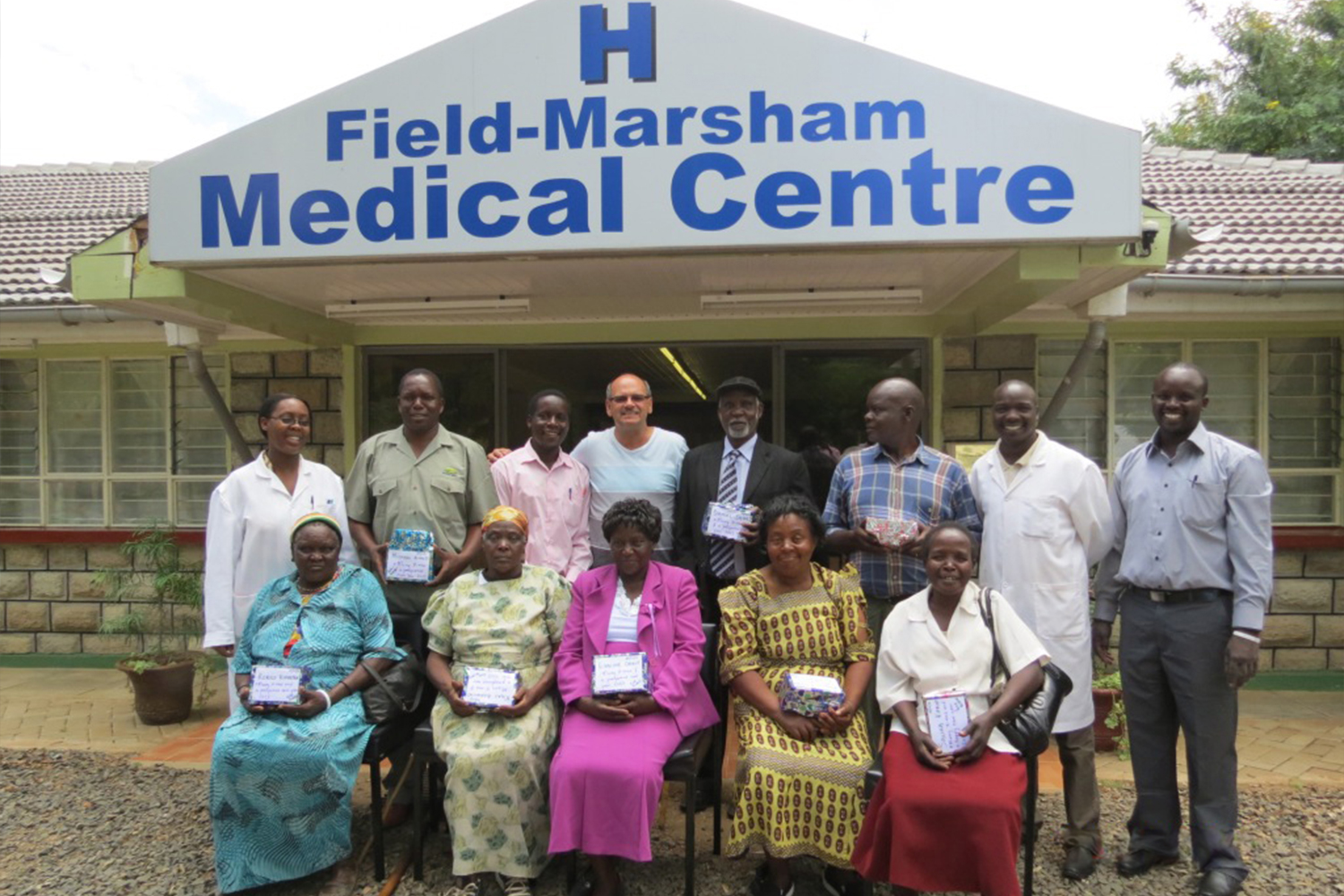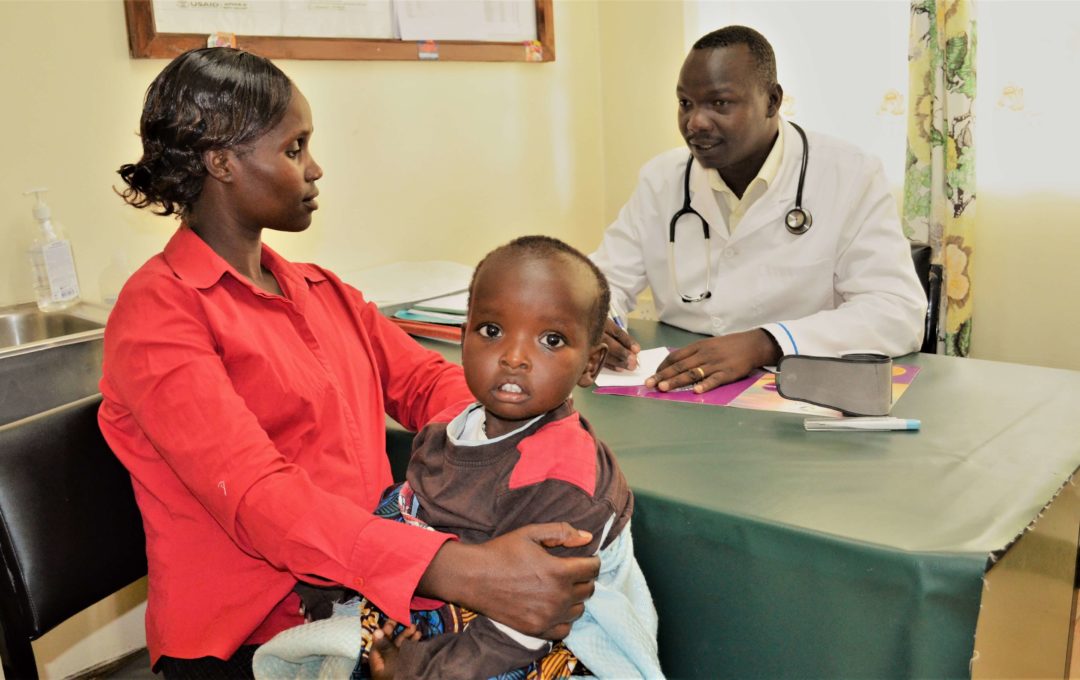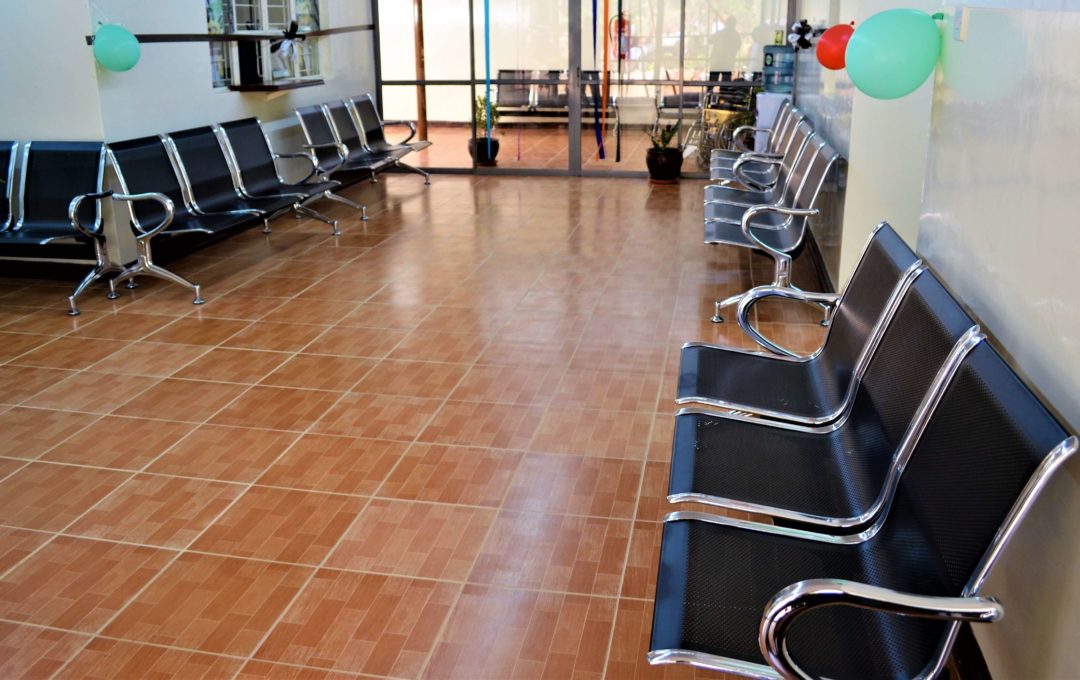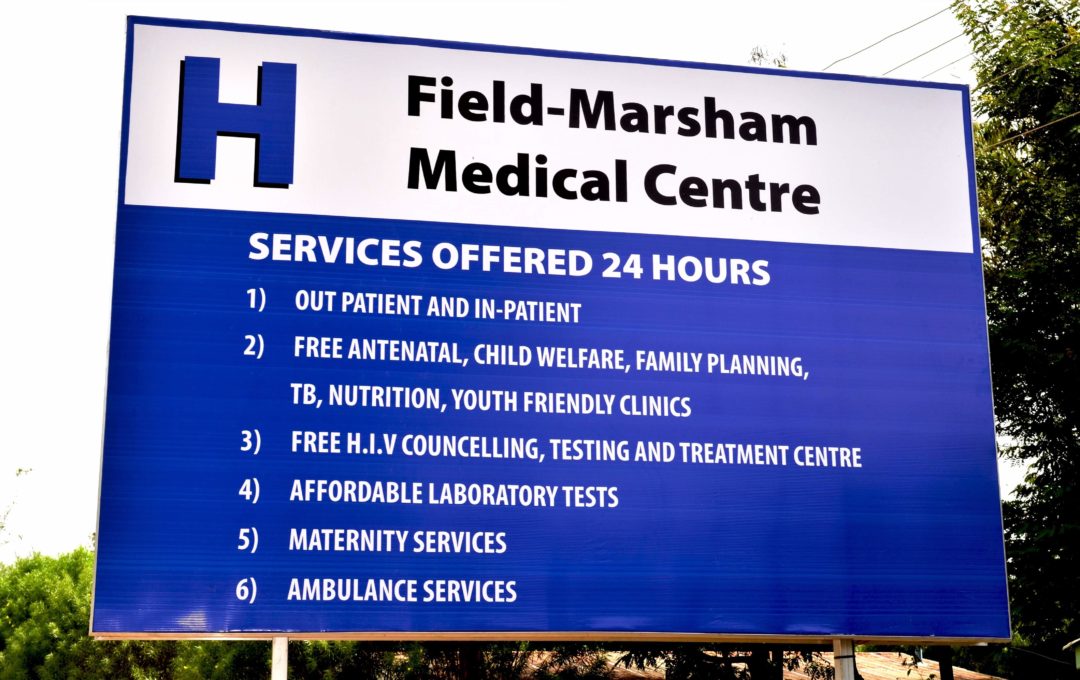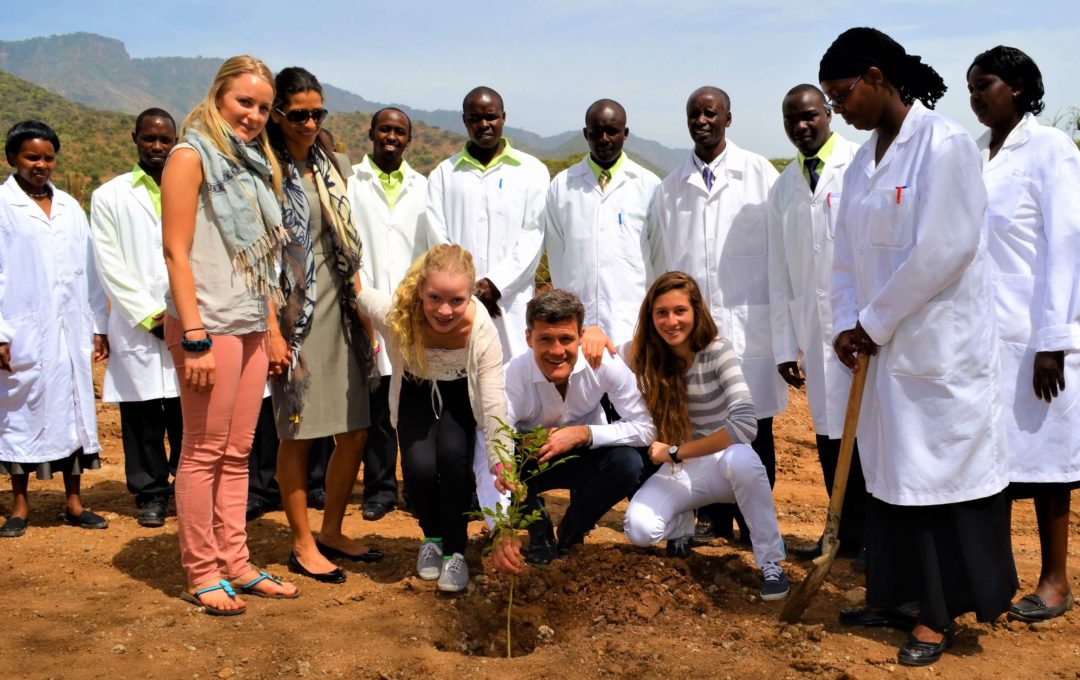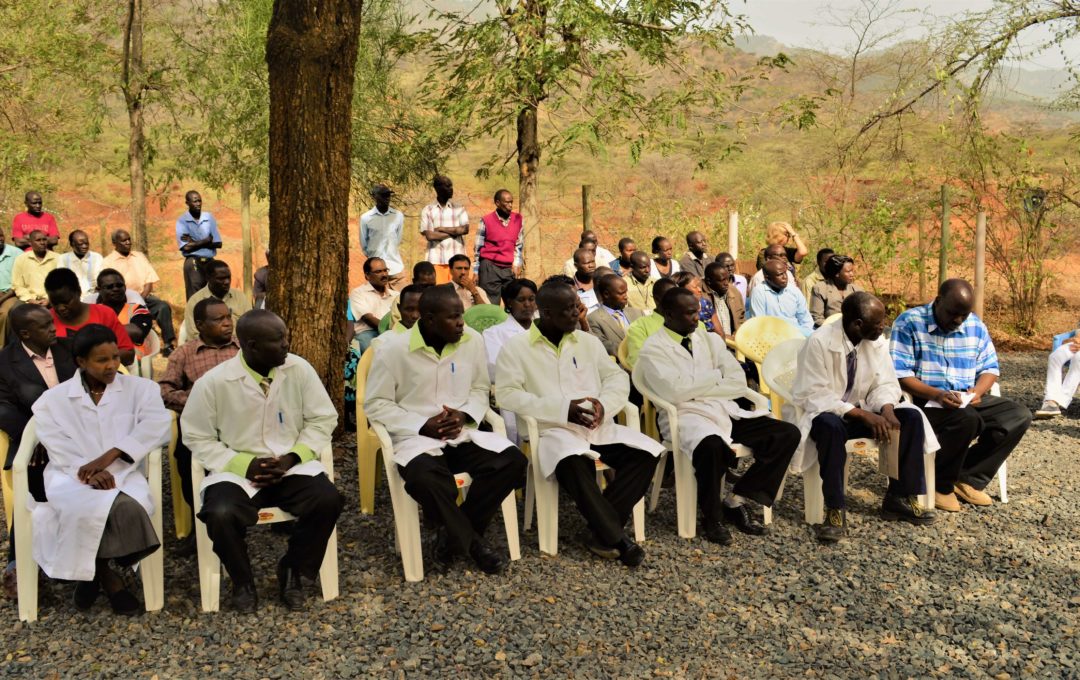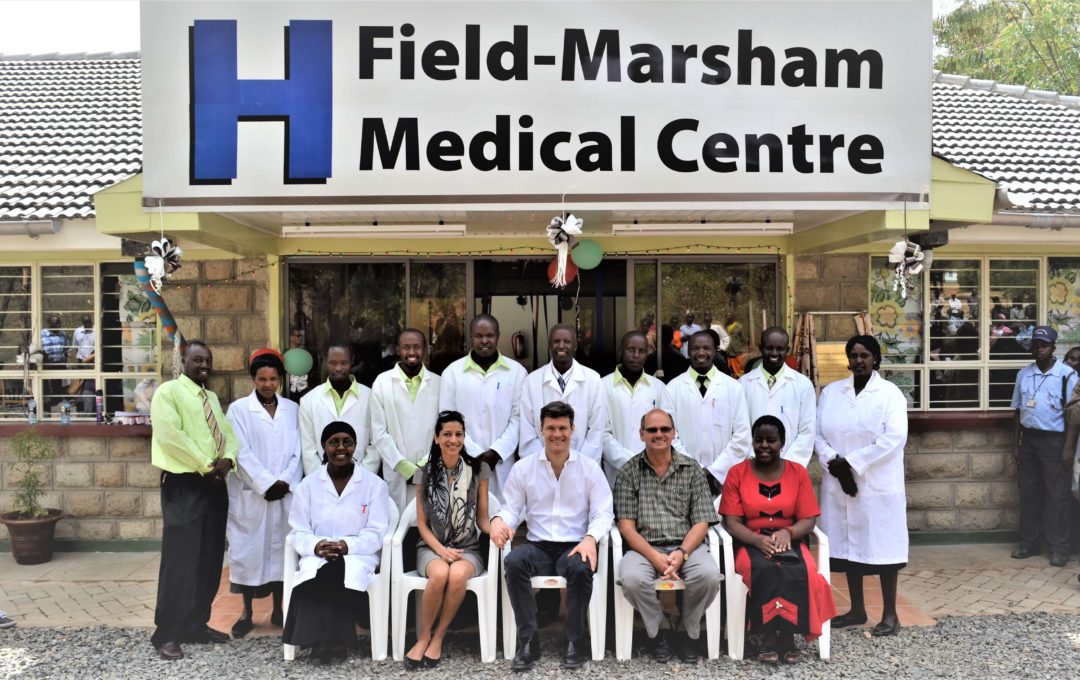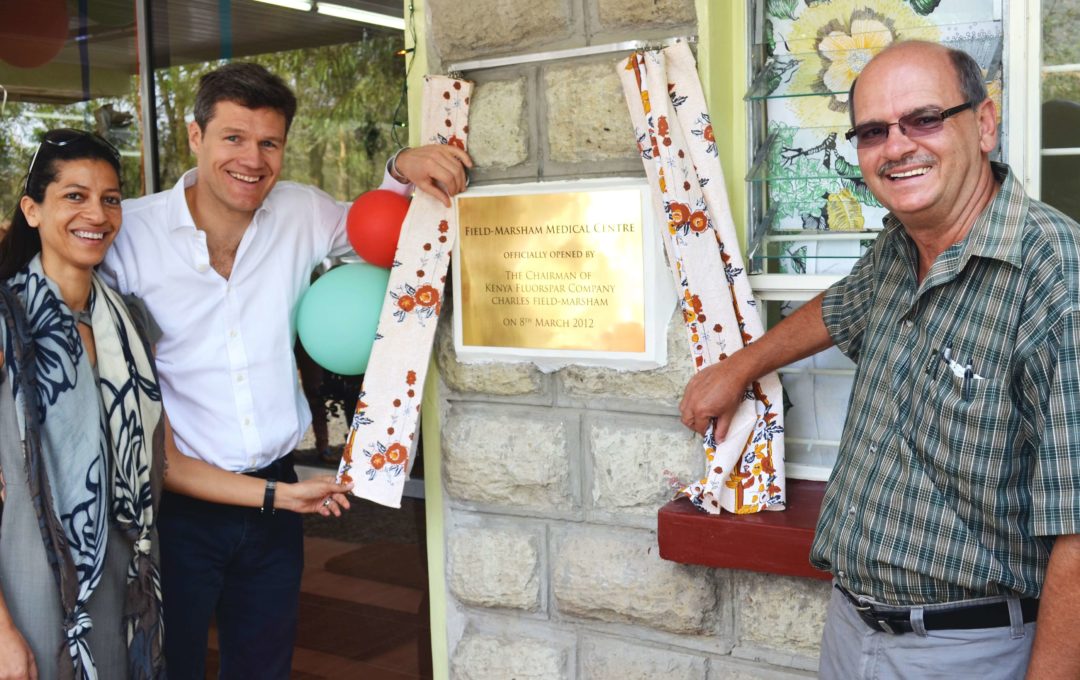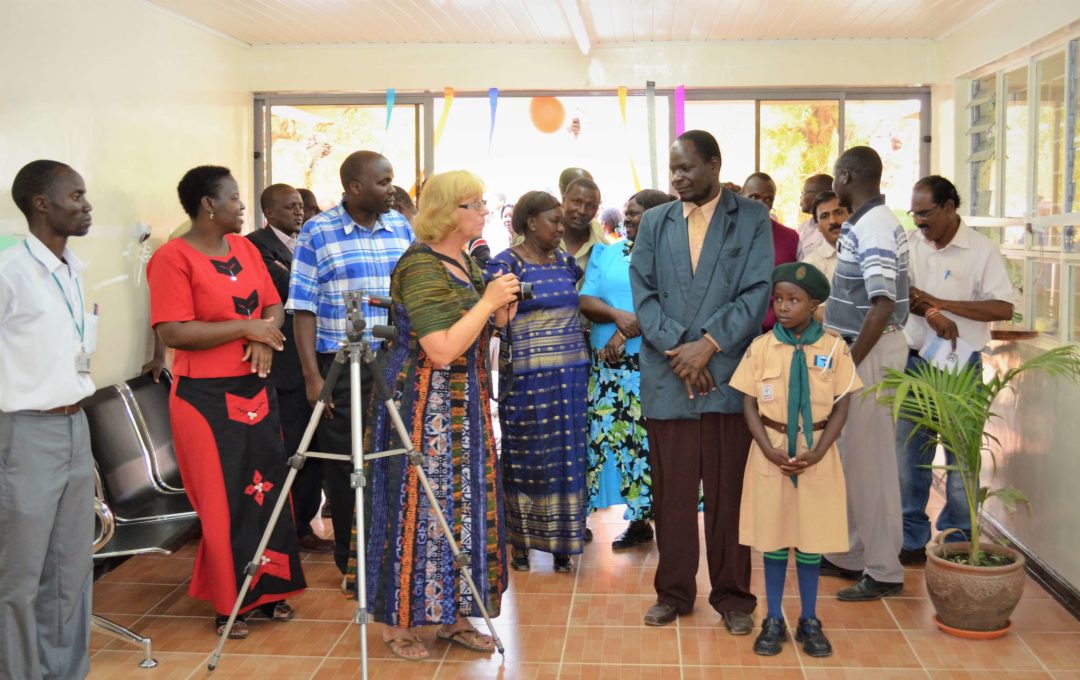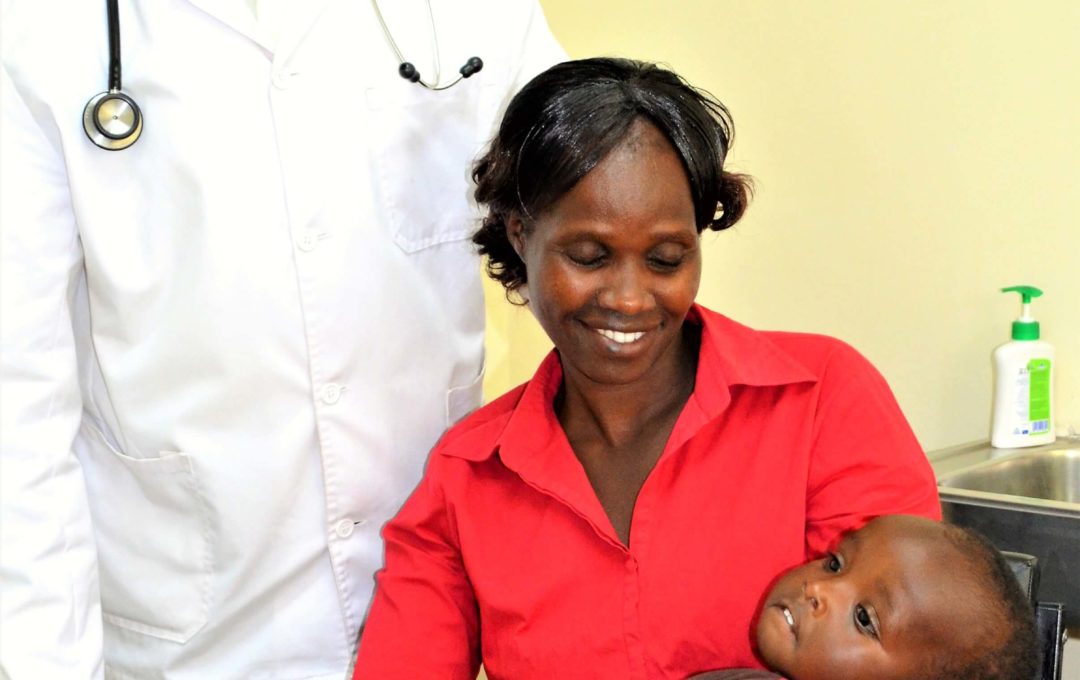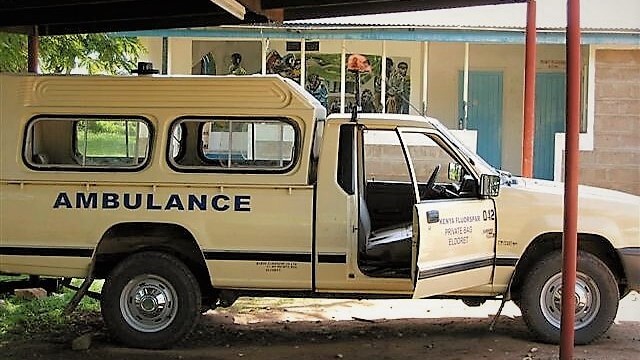The Field-Marsham Medical Centre
Kenya Fluorspar’s medical facilities were expanded and enhanced with the opening of the upgraded Field-Marsham Medical Centre in March 2012, at a cost of USD 250,000. The new facility was five times larger than the original clinic and was equipped with the latest technology and manned with fourteen qualified staff, its operations being subsidised by the Company to the tune of USD 120,000 per annum. It offered separate male, female, and children’s wards, as well as an advanced maternity section. Additional services included an ante-natal clinic, family planning services and a child welfare and nutrition clinic. These services were further enhanced with the 24 hours, 7 days a week availability of a specially equipped ambulance which cost USD 60,000.
The clinic handled approximately 1,000 cases per month of which approximately 50 per cent were from the wider local community. Clinic staff also provide vital outreach services twice per week to nearby villages, seeing between 40 and 100 patients per visit. These outreach services were limited to areas within 25 km from the Medical Centre.
Highlights:
- Treated approximately 800 patients per month at the Field-Marsham Medical Centre, and ~700 patients monthly through the medical outreach program. The Company heavily subsidized consultations and drug supplies at ~USD 120,000 per annum.
- The medical facility was equipped with a fully qualified medical staff that consisted of clinical officers, nurses, laboratory technicians and pharmacists.
- The Company-sponsored ambulance, which cost USD 60 000 was available on standby 24 hours a day for emergencies.
- Sponsored a heart defect child for operation and treatment in India in 2014 costing approximately USD 12 000.
- Donated diabetic testing kits and blood pressure machines to a total of 52 patients based on need and ensured availability of testing strips. Progress and follow up consultations of patients were monitored regularly at the Medical Centre.
- Assisted a student from Kimwarer Secondary School who had brain cancer by procuring treatment at a cost of ~USD 9,000.
- Sponsored regular World AIDS Day celebrations from 2013 – 2016 at the Kimwarer Sports grounds at a cost of ~USD 10 000 per function. Main target was to create awareness of AIDS by providing free tests and address the stigma attached to it.
Our Services
Outpatient Services:
Outpatient services increased the capacity upon the commissioning of the new facilities in 2012 and grew to serve between 20-50 patients every day. Walk-in consultation was available 24 hours a day, 7 days a week, 365 days a year, including on public holidays. Most patients came from the community while also including company employees and their beneficiaries, at a ratio of 60:40.
The facility had two consultation rooms, well-equipped with diagnostic tools and emergency items. Compliance with international standards (WHO) on emergency disease management, together with continuous training from within and from partners (i.e. Medcan Clinic in Toronto, Canada) shaped the facility’s speedy response to emergencies and general ailment management.
The staff members in the department recognized the need to treat patients with utmost respect and professionalism. They went out of their way to ensure that patients were attended to in a timely and effective way before discharging or transferring them to inpatient wards or referring them for specialized treatment.
Inpatient Services:
The facility had a bed capacity of 13 ward beds (3 male, 3 female and 3 pediatrics, 2 maternity, and 2 private wards). Inpatient services involved admitting between 1-4 patients per day.
There were always staff covering night shifts. To achieve the necessary quality of care, procedures, policies, and standards were put in place using international benchmarks. Regular ward rounds were performed around the clock to ensure that the care was always elevated. Ward bed capacity, outstanding facilities, and professional health care made the facility a preferred hospital in the region. Continuous on-the-job training, experience, and medical education improved the patient management skills of staff, reducing hospital stays. Access to a kitchen and regular meals and washrooms was also available to patients.
Nutrition Services:
At the various clinics, proper nutritional diets was always emphasized and patients were encouraged to embrace it in their lifestyles. Numerous cases of children suffering from malnutrition and related ailments (i.e marasmus and kwashiorkor) were handled.
Maternity Services:
Maternity services offered at the facility involved referral services in cases of maternity complications. An average of 10 deliveries were handled every month at the Medical Centre.
The delivery rooms had adjustable modern delivery beds that made it easier to assume the correct positions for delivery. Modern fetal monitors (doppler fetoscopes) were available to promote continuous coverage of unborn babies’ heartbeats. Patients were encouraged to room in to facilitate bonding between them and their babies. Early breastfeeding on demand would reduce idleness, irritability, vulnerability and fast recovery from pregnancy effects.
Pharmacy and Treatment Services:
The Field-Marsham Medical Centre’s pharmacy was managed by a qualified registered pharmaceutical technologist who controlled the daily movement of drugs. The company procured drugs quarterly, as well as basic medications such as antimalarials, analgesics, antibiotics and ointments. Employees and their registered beneficiaries had access to these services for free while the community had access at a highly subsidized rate or free if they could not afford the fees.
Common ailments were malaria, respiratory tract infections, cut wounds, septic wounds, dermatitis pneumonia, urinary tract infections, soft tissue injuries, dental carries, eye and ear infections and chronic diseases like diabetes and hypertension.
Medical Outreach Program:
The facility offered outreach services to nearby communities in the Kerio Valley, including five outreach sites: Simit (20km away), Kures (23km away), Kapkono (10km away), Kalwal (16km away), and Turesia (18km away). The outreach program was offered two to four times weekly, where approximately 70-100 patients were seen per visit.
Comprehensive healthcare services were offered, such as consultation, drug dispensing, basic laboratory testing, antenatal, family planning and child welfare services, as well as screening for visual problems and chronic diseases which could involve referrals to the facility or other referral sites. Since there was poor health-seeking behavior in these communities, extensive public health education via outreach services to schools, markets, and barazas (public gatherings) would make a huge impact on the awareness and prevention and treatment of ailments.
In April 2015, Medcan joined our outreach team on some clinics. You can read about this on their blog.
Referral Services:
The facility’s fully equipped ambulance offered services to referral hospitals in Eldoret (~75km away), Iten (~ 60km away), or Kabarnet (~40km away) at a fee of Kshs 2000 per trip (~ USD 15).
Family Planning:
Family planning services included the provision of oral drugs, injectables, and implants (i.e. Norplant), depending on patients’ condition or prevalence. These services were available every day at the facility, as well as through the outreach program.
Clinics
Antenatal Clinic:
This clinic was served by clinical officers and nurses. It catered for expectant parents where the mother and unborn baby’s health was monitored, maintained, and optimized to ensure a healthy pregnancy, safe delivery and post-delivery period. The mothers also received follow-up at the postnatal clinic upon delivery. This clinic was available once a week on Tuesdays and offered through the outreach program on Mondays and Fridays. More than 20 expectant mothers were seen per month at the facility, as well as more than 20 per month on outreach.
Child Welfare Clinic:
The Child Welfare Clinic dealt with immunization and weight monitoring of children less than 2 years old. An average of 70-100 children attended the clinic every month, while more than 100 per month were treated through the outreach program. Vaccines were provided by the government for free.
VCT/PITC/DTC Clinic:
Voluntary Counselling and Testing, Antiretroviral Therapy (VCT), Provider Initiated Testing and Counselling (PITC) and Data to Care (DTC) treatment services were integrated into day-to-day outpatient, inpatient, and outreach activities. More than 50 clients per month were tested for HIV. Test kits were also provided by the Kenyan government every quarter through Kemsa.
Tuberculosis (TB) Clinic:
Tuberculosis (TB) services were integrated with the HIV-related clinic and services. Drugs were offered for free and supplied by the Kenyan government. About 1-5 clients were treated per month as TB was a rare disease in the valley. Sputum for AAFB testing was done at the facility through a TB laboratory separate from the main laboratory.
Comprehensive Care / HIV Clinic:
The facility also offered comprehensive care services in partnership with AMPATH through the county health department, which facilitated the county’s HIV programs (supplying drugs, writing, and learning materials, lab tests for CD4 (a type of white blood cell), dried blood spots (DBS) for viral load, and frequent mentorship programs.
The facility had a clinic open daily to serve HIV/AIDS patients. The clinic had 130 patients continuously enrolled, with more than 20 transferred in from other ARV sites.
The facility also offered annual HIV/AIDS voluntary testing and counselling throughout the community on World AIDS Day (December 1 every year), where food and T-shirts with HIV messaging were provided.
